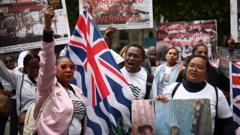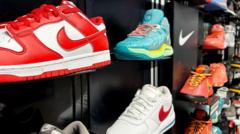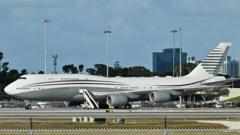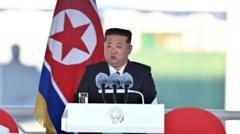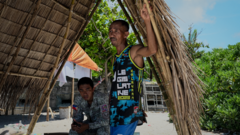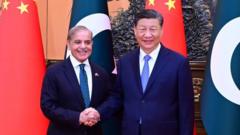Uniqlo's chief executive, Tadashi Yanai, has stated that the brand does not utilize cotton from Xinjiang, in a move that reflects the complex pressures on global businesses operating amid geopolitical tensions.
Uniqlo Confirms No Use of Controversial Xinjiang Cotton Amidst Global Scrutiny
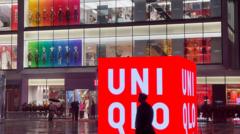
Uniqlo Confirms No Use of Controversial Xinjiang Cotton Amidst Global Scrutiny
Fast Retailing's CEO addresses cotton sourcing debates while eyeing expansion in China and beyond.
In a recent interview with the BBC, Tadashi Yanai, the head of Fast Retailing, the parent company of Uniqlo, addressed a sensitive topic in global fashion: the sourcing of cotton from the Xinjiang region of China. For the first time, Yanai confirmed that Uniqlo does not use Xinjiang cotton, a fabric previously celebrated globally for its quality but now overshadowed by accusations of forced labor involving the Uyghur Muslim minority.
This revelation comes as brands worldwide face mounting pressure from both the United States and China regarding ethical sourcing. With Xinjiang cotton increasingly stigmatized, several international retailers, including Nike, H&M, and Adidas, found themselves in the crossfire of backlash and boycotts in China. Unlike its competitors, Uniqlo has maintained a more neutral stance, a strategy that has helped safeguard its popularity in the Chinese market.
China is not only a critical consumer base for Uniqlo—boasting approximately 1,000 stores compared to fewer in Japan—but also serves as a pivotal manufacturing hub. Yanai acknowledged the palpable tension businesses encounter in balancing relations with both major powers, noting that "not a single large company can remain politically neutral anymore." With this announcement, he aims to be more forthcoming about sourcing, despite political implications.
Uniqlo has committed to increasing transparency regarding sourcing practices, though Yanai refrained from delving deeper into the political ramifications during the interview. The fashion industry leader emphasized that the company will focus primarily on essential clothing that is durable rather than succumbing to the unsustainable fast fashion trend exemplified by brands like Shein and Temu.
Despite challenges posed by the rising popularity of ultra-fast fashion and potential trade tensions under a future Donald Trump administration, Yanai's ambitions remain steadfast. He aspires to make Uniqlo the leading global fashion retailer, particularly in a market as vast as China, with plans to triple store numbers in the country.
As the global fashion landscape continues to evolve under the weight of scrutiny regarding human rights and labor practices, Uniqlo’s deliberate navigation of these issues will play a crucial role in its growth strategy. The coming years are likely to offer both opportunities and challenges as consumer awareness around the origins of their products grows.





